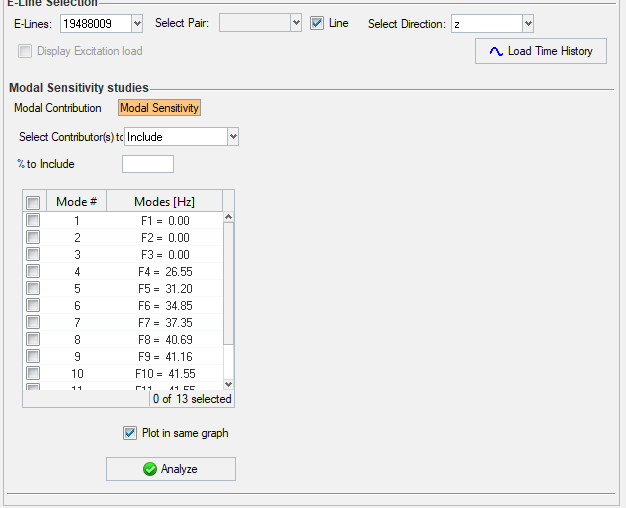Modal Sensitivity
The modal sensitivity study can be performed on complete E-Lines or a selected Node pair belonging to an E-Line. Once the RMC is done and determine the modes that exhibit maximum contribution to the relative displacements that lead to squeak and rattle, you can study the effect of particular mode(s) on the total response. SnRD computes the total response (relative displacement) based on the equation of motion without need to simulate again. This enables to understand the potential of a design change that leads to damping or eliminating a certain mode shape.
Chosen modes can be Included or Excluded from the results and displacements recalculated to observe their effect on the squeak and rattle performance.
To do a modal sensitivity study, you have to select Modal Sensistivity in the Modal Sensitivity studies tab.

Figure 1.
- Select Contributor(s) to: select whether to Include or Exclude a mode for
analysis.

Figure 2.Input Description Inlcude Includes the selected modes in the recalculation of the displacements Exclude Excludes the selected modes in the recalculation of the displacements - % to include - define the percentage value of the mode to be considered for evaluation
- Modes - list containing all the modes present in the result file. You can check the boxes under Modes column to select a mode
- Plot in same graph - define if the study plot should be plotted in the same graph as the relative displacement
- Analyze - after making the required inputs definition, click to run the analysis and plot the graphs.